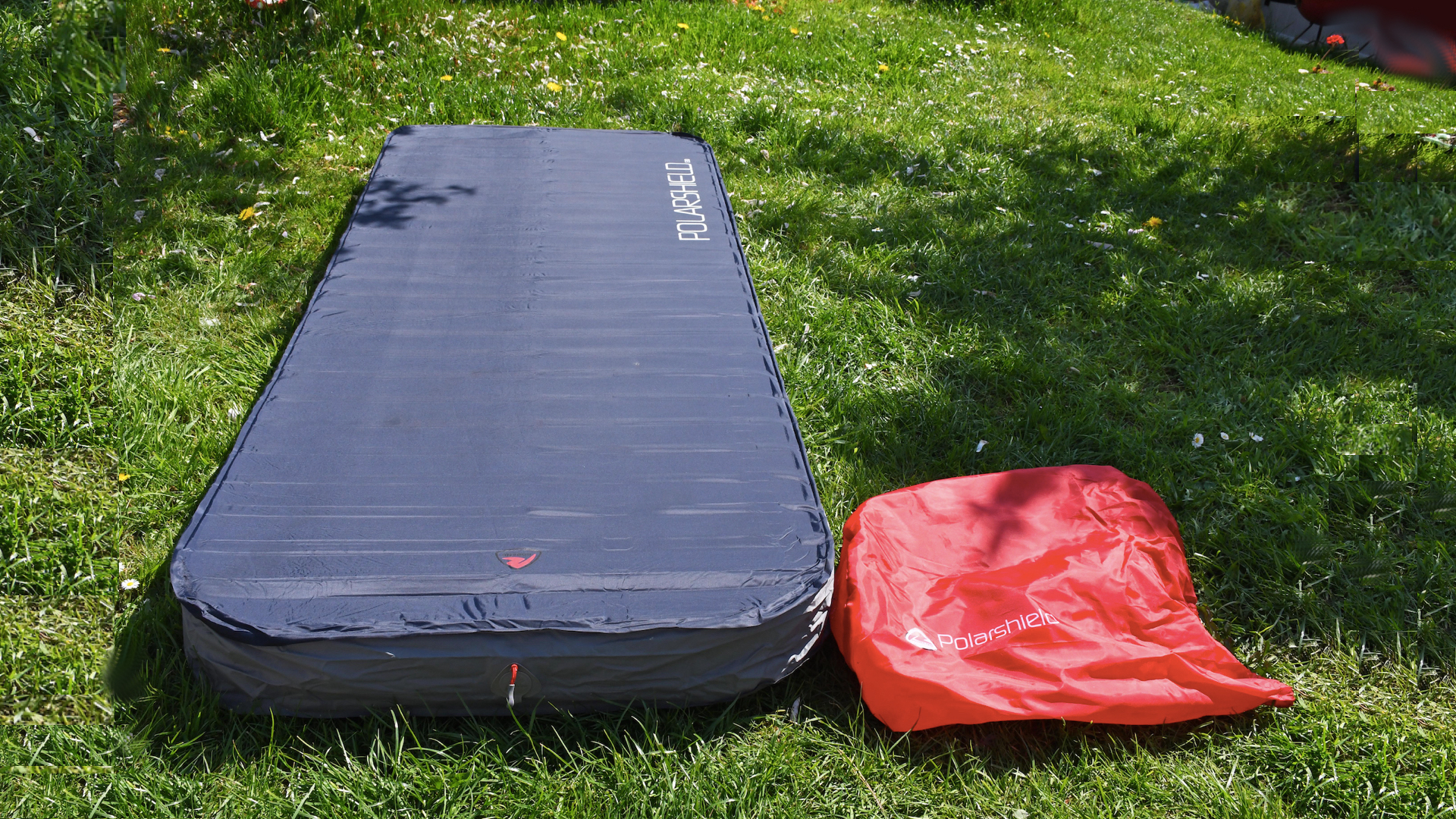Advnture Verdict
A gloriously comfortable, self-inflating, four-season sleeping mat for year-round adventures when you’re not traveling light.
Pros
- +
Luxuriously comfortable
- +
Self inflating
- +
Quick to pack
- +
PFC free
Cons
- -
Bulky
- -
Expensive
You can trust Advnture
Robens Polarshield 120: first impressions
Newly released for Spring 2022, the Robens Polarshield 120 is the brand’s thickest, warmest and most comfortable 3D self-inflating mattress (SIM). It employs a 20D 390T nylon fabric with a double square ripstop weave to reduce weight and packed size.
The Polarshield 120 features Robens’ innovative and easy-to-use Peak Valve, and self inflates surprisingly quickly for such a sumptuously deep mat. To operate it, you pop open the cover and push the mini-diaphragm in to start the inflation process (which takes a few minutes, during which time you can be doing various other tasks around the camp site, such as chopping firewood or setting up your camping stove). When that’s done, you simply pull the valve forward to seal it, after which you can still blow air in to adjust the firmness of the mat. To quickly deflate, push the valve back to the open setting and roll the whole thing up, squeezing the air out.
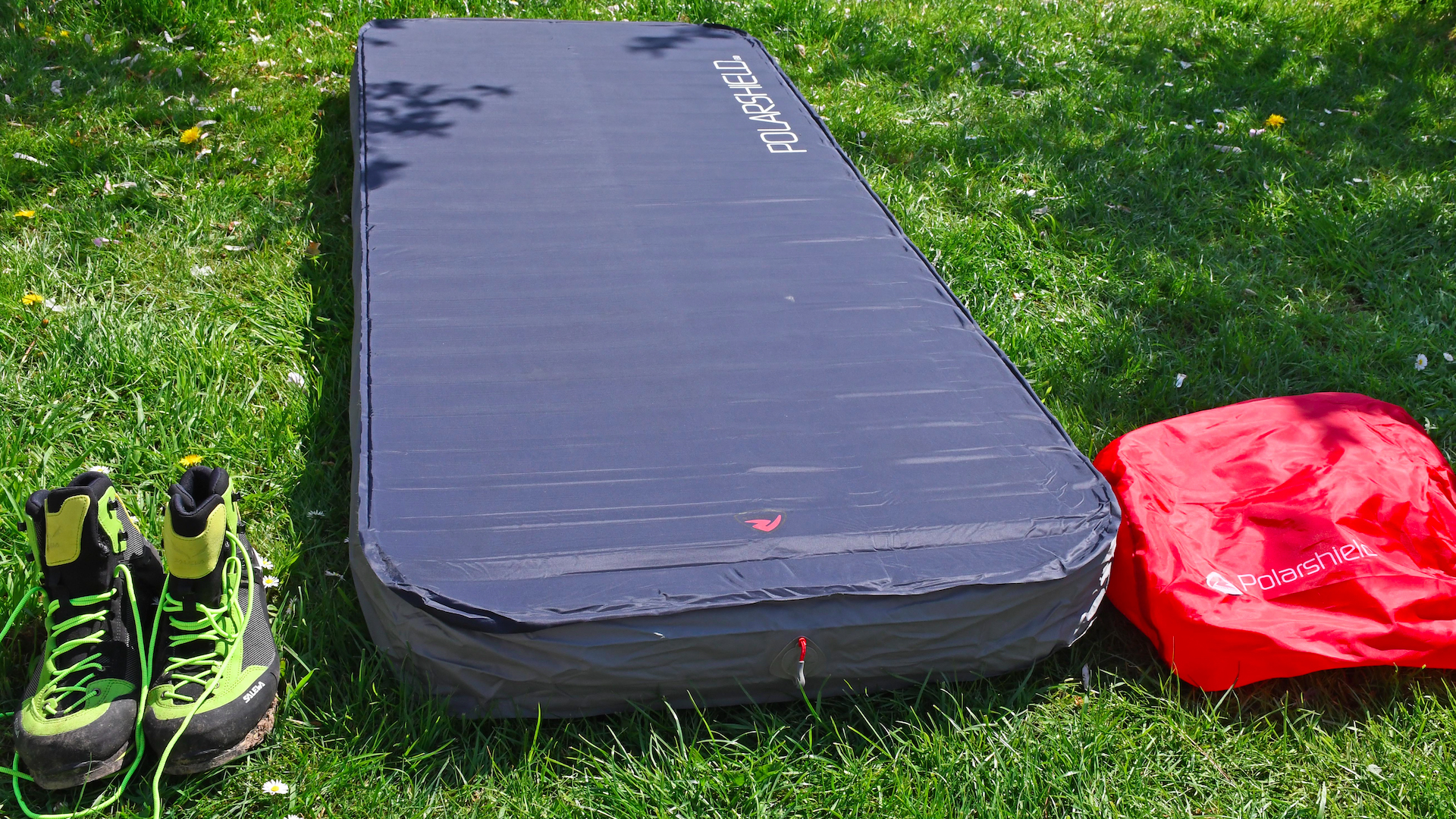
The design features vertical cutouts, which reduce the carry weight and create a row of rounded air pocket on the sides; these contribute an extra 2cm to the thickness of the mat, making it extra comfortable.
The durability of the delamination-proof TPU materials seems good (time will tell, and we will report back) and the mat is pleasingly PFC free. It comes with a carry bag.
But how did the Robens Polarshield 120 fare under test conditions for our best sleeping pad buying guide? Read on to find out…
• RRP: £190 (UK) / €233.95 (EU)
• Style: Thick, self-inflating air mat
• Weight: 2.43kg / 5lb 35oz
• Variants: Also available in 80mm thickness
• Usable dimensions: 200cm x 77cm / 79in x 30in
• Thickness: 12cm / 4.7in
• Pack size: 39cm x 28cm / 15in x 11in
• R-Value: 5.0 (-19°C/-2.2°F)
• Compatibility: Four-season car camping, festivals, garden and inside use
Robens Polarshield 120: in the field
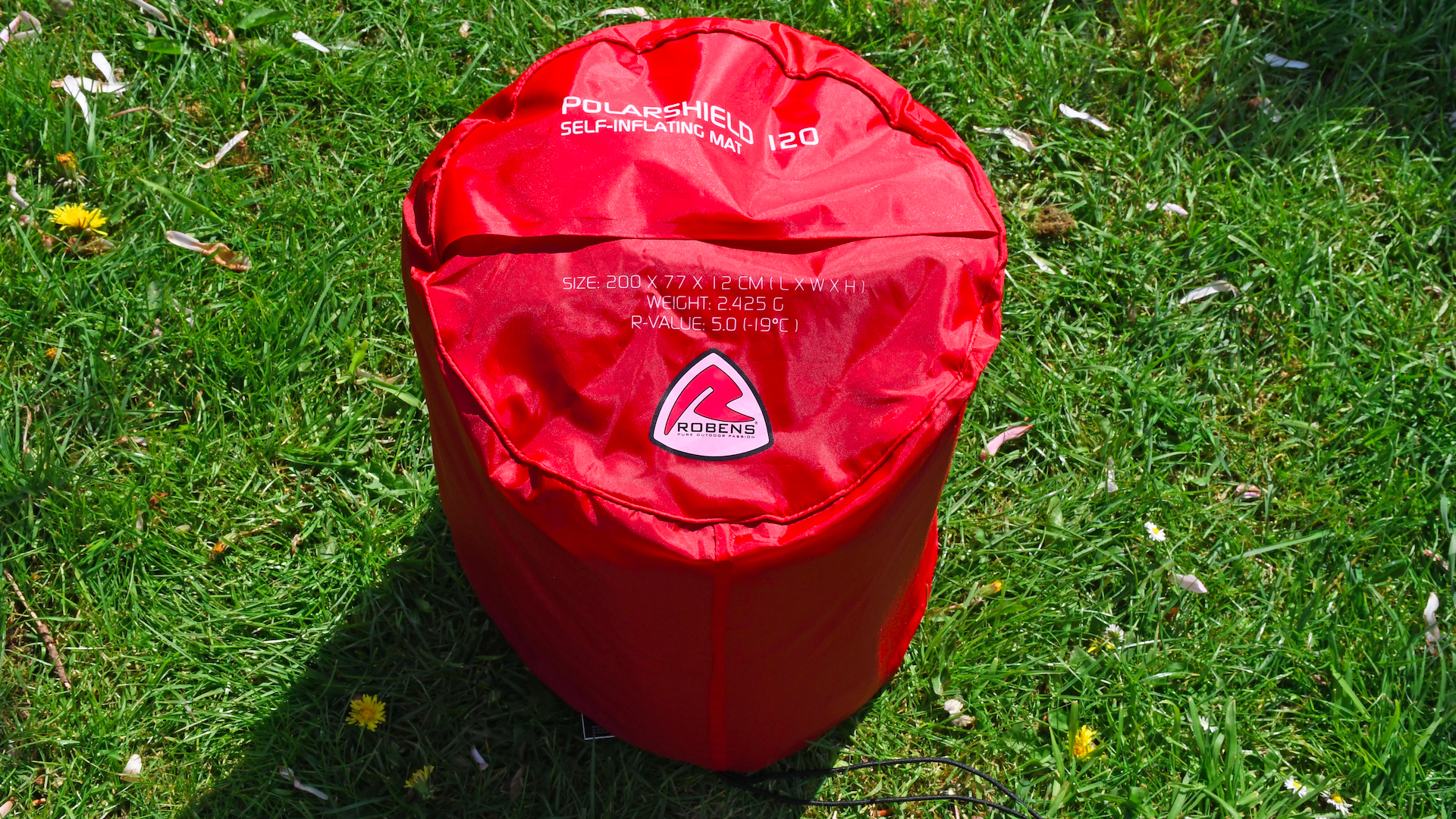
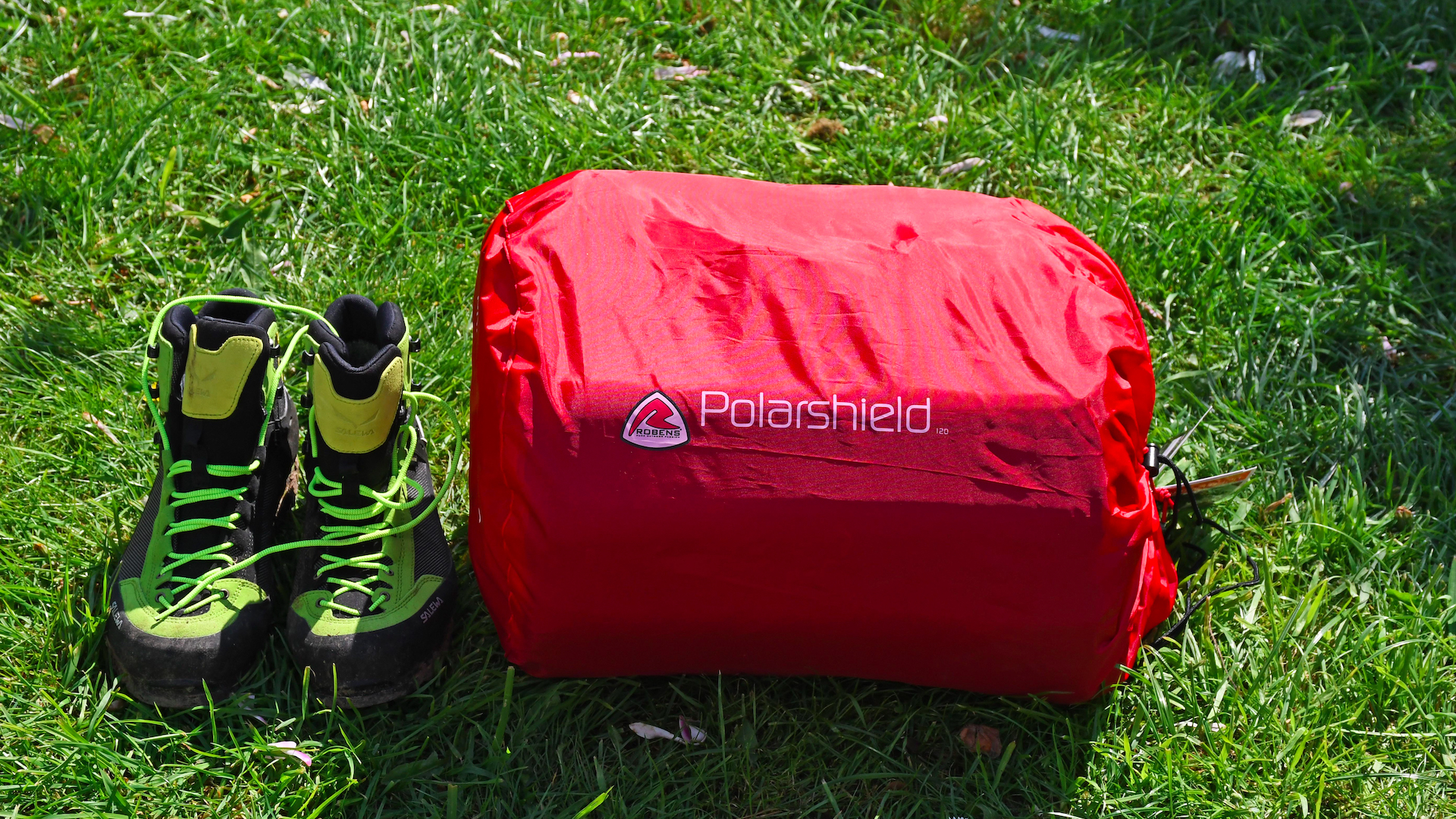
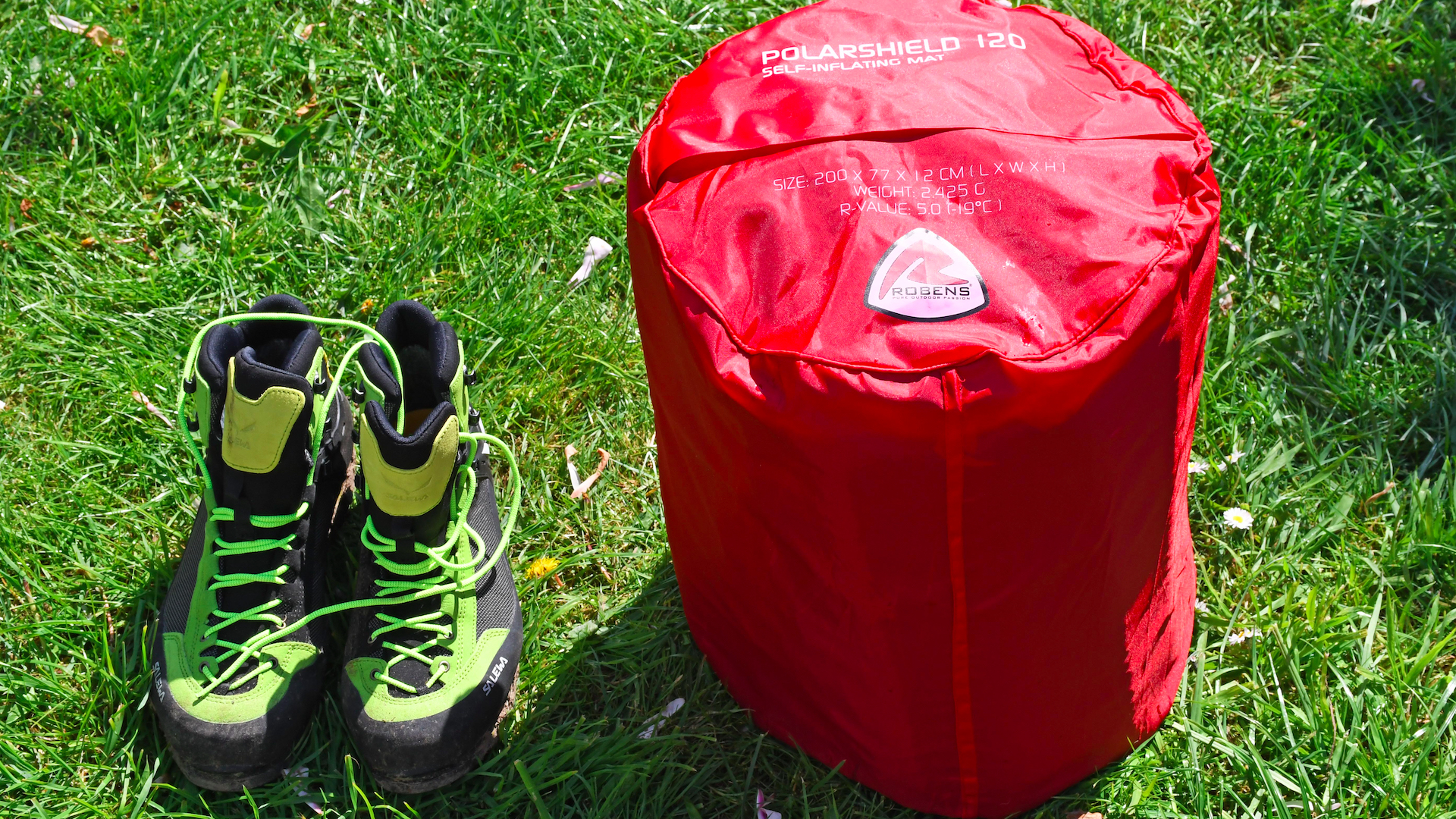
I used this mat on several camping outings during a chilly English spring, and found it to be impressively warm, and extremely comfortable.
The Peak valve appears almost suspiciously small and simple, but on test it worked perfectly and repeatedly. To be honest, I feared the pop-open cover and apparently tiny diaphragm that the whole design depends upon would fail, but there was no sign of that happening, and the mat stayed inflated all night, every night.
All the latest inspiration, tips and guides to help you plan your next Advnture!
The air pockets and overall thickness of the matt makes it luxurious to lie on, and I enjoyed excellent sleep during the nights I was testing it.
As Polarshield 120 weighs in at nearly 2.5 kilos, I’m not going to be packing it on any multiday hiking or biking adventures, but it’s certainly much more compact and easy to transport than any other car camping mattress I’ve tested. I wouldn’t hesitate to use this sleeping pad all through winter.

Author of Caving, Canyoning, Coasteering…, a recently released book about all kinds of outdoor adventures around Britain, Pat has spent 20 years pursuing stories involving boots, bikes, boats, beers and bruises. En route he’s canoed Canada’s Yukon River, climbed Mont Blanc and Kilimanjaro, skied and mountain biked through the Norwegian Alps, run an ultra across the roof of Mauritius, and set short-lived records for trail-running Australia’s highest peaks and New Zealand’s Great Walks. He’s authored walking guides to Devon and Dorset, and once wrote a whole book about Toilets for Lonely Planet. Follow Pat’s escapades on Strava here and Instagram here.
